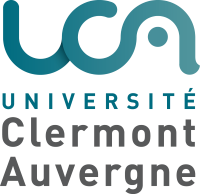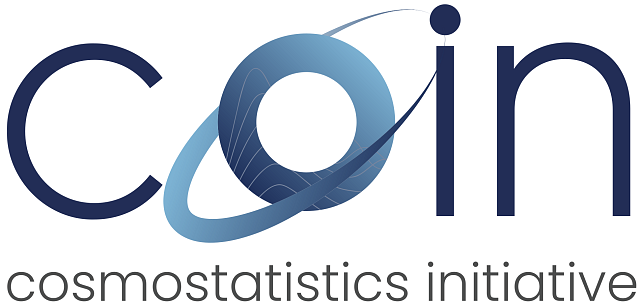Fink
The Fink team is involved in the study of transient sky, i.e. cosmic phenomena that vary over time. It uses real-time alerts from two astronomical surveys: the Vera C. Rubin Observatory Legacy Survey of Space and Time (LSST) and the Zwicky Transient Facility (ZTF). The team’s approach is centred on the use of machine learning and artificial intelligence (AI) — for classification and anomaly detection — and the development of interdisciplinary and innovative scientific environments.
The Fink broker
The real-time data produced by the Vera C. Rubin Observatory is too complex and too voluminous to be distributed directly to the astronomy community. The goal of the Fink broker is to act as an interface between the telescopes producing the alerts and the scientists analysing the data. Fink receives and ingests the data, enriches them using catalogues cross-matches, classifies and filters them using algorithms based on artificial intelligence, and redistributes the most interesting alerts according to criteria defined by the user community.
Fink is an international collaboration of more than 70 researchers in 18 countries. The scientific subjects addressed cover most areas of the variable sky, from solar system objects to distant cataclysmic events. It was designed to be very modular, allowing users to develop their own scientific modules according to their needs: the broker can even be used by amateurs.
In 2023, Fink received the Open Science Prize for Free Software in Research, awarded by the French Ministry of Research.
At LPCA, the Fink team centralizes the coordination of the scientific modules, adaptation of machine learning techniques and ensures software maintenance and portability. More specifically, we work in the development of efficient feature engineering, anomaly detection and classification techniques, studying objects such as superluminous supernovae, tidal disruption events and cataclysmic variables.
We also actively engage in the developing new styles of scientific collaboration, promoting a human-centred approach to scientific development. These efforts include our strong ties with the SNAD collaboration and the Cosmostatistics Initiative (COIN).
Project website
fink-broker.org
The SNAD collaboration
The SNAD collaboration was born in 2018, with the goal of developing machine learning techniques for anomaly detection in astronomical data sets. Initially focused on supernovas, the active learning tools put in place have proved sufficiently powerful and versatile to be transferred to other fields, such as the eruptions of M-class dwarf stars or the detection of artefacts in astrophysical images. The methods developed are of interest beyond astrophysics and are transferable to other scientific domains.
The collaboration now hosts a dozen researchers from France, Russia, UK and the USA, and was the first to introduce the use of active anomaly detection techniques for astronomical data analysis.
LPCA plays a major role by centralizing the activities of the collaboration, in parallel to Fink activities, coordinating its activities, developing and adapting machine learning strategies and by hosting the SNAD ZTF viewer, a platform for simultaneous visualization of multiple data sources, initially built to fulfill the needs of the SNAD team but has become widely used by the astronomical community.
Project website
snad.space
The Cosmostatistics Initiative
The Cosmostatistics Initiative (COIN) is an international network whose goal is to foster interdisciplinarity inspired by astronomy. Since 2014, it has established itself as an unstructured model for the development of scientific working environments and free scientific thinking. Initially designed to increase interaction between astronomy and statistics, the group now hosts more than 80 researchers from a large range of nationalities, covering a range of disciplines (astronomy, computer science, statistics, music, philosophy, as well as non-academic specialists).
At LPCA, activities are hosted within the Fink group, who centralizes the management of all Python-related COIN projects as well as the logistics of its scientific meetings, and hosts its computational infrastructure. The COIN Residence Program #4, which took place in Clermont Ferrand, 2017, resulted in the first application of active learning for supernova photometric classification, and putting the team in the forefront of the development of recommendation systems for astronomical observations.
Project website
cosmostatistics-initiative.org
Interdisciplinarity
We also carry cross-disciplinary actions around artificial intelligence and data science with national scope (Mission pour les Initiatives Transverses et Interdisciplinaires of the CNRS, Machine Learning group of the IRFU IN2P3) and local scope (AI working group of the DATA programme of the iSite CAP 20-25, Machine Learning working group at the LPCA).
Publications
Team publications
The team
Emille E. O. Ishida (IR) - team leader
Emmanuel Gangler (DR)
Fabrice Jammes (IR)
Gabriel da Silva Moreira Teixeira (visiting PhD student - CBPF, Brazil)
Marine Hebert (administration)
In this section
-
Test
test
-
Fink
The Fink team is involved in the study of transient sky, i.e. cosmic phenomena that vary over time. It uses real-time alerts from two astronomical surveys: the Vera C. Rubin Observatory Legacy Survey of Space and Time (LSST) and the Zwicky Transient Facility (ZTF). The team’s approach is centred (…)






